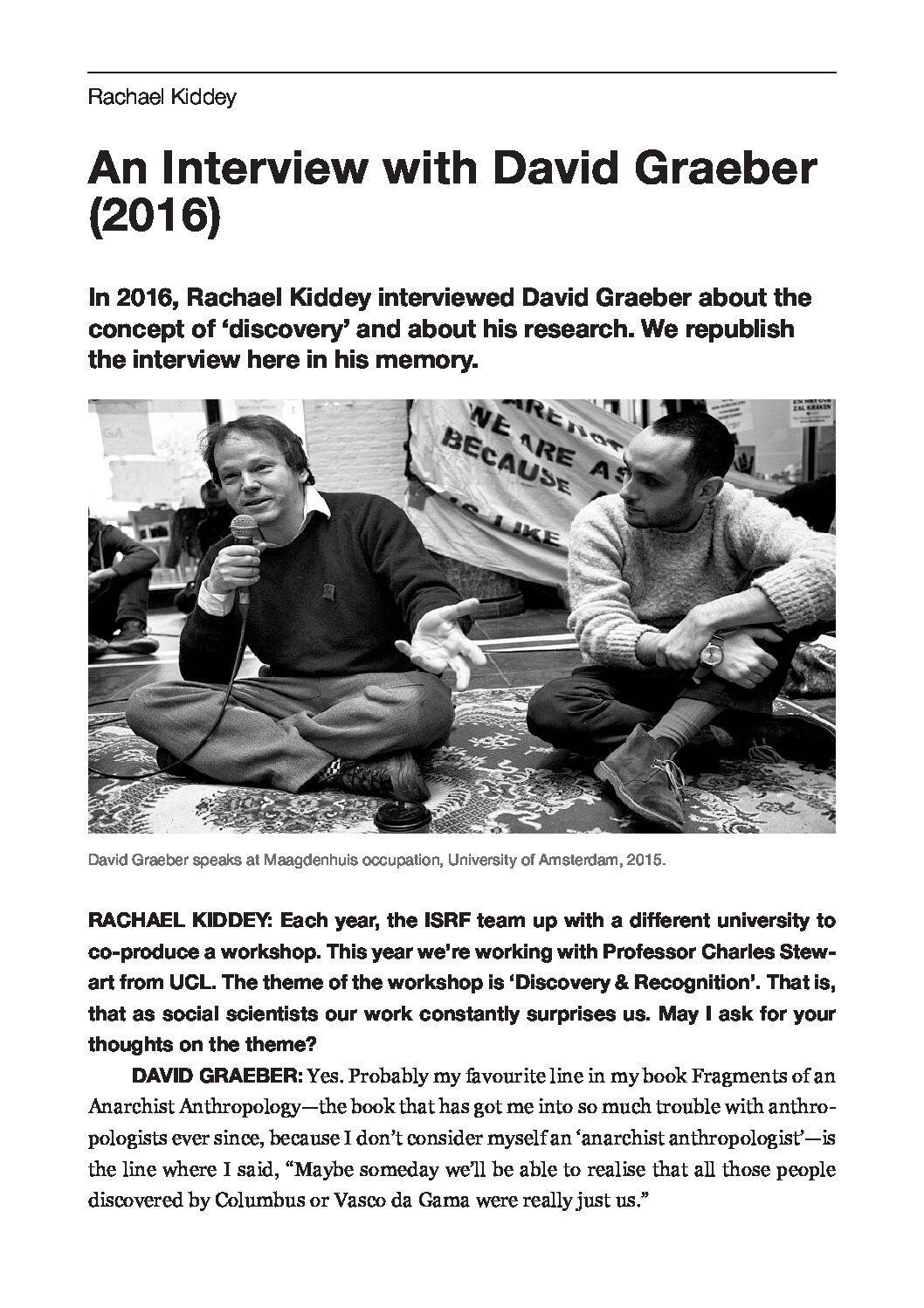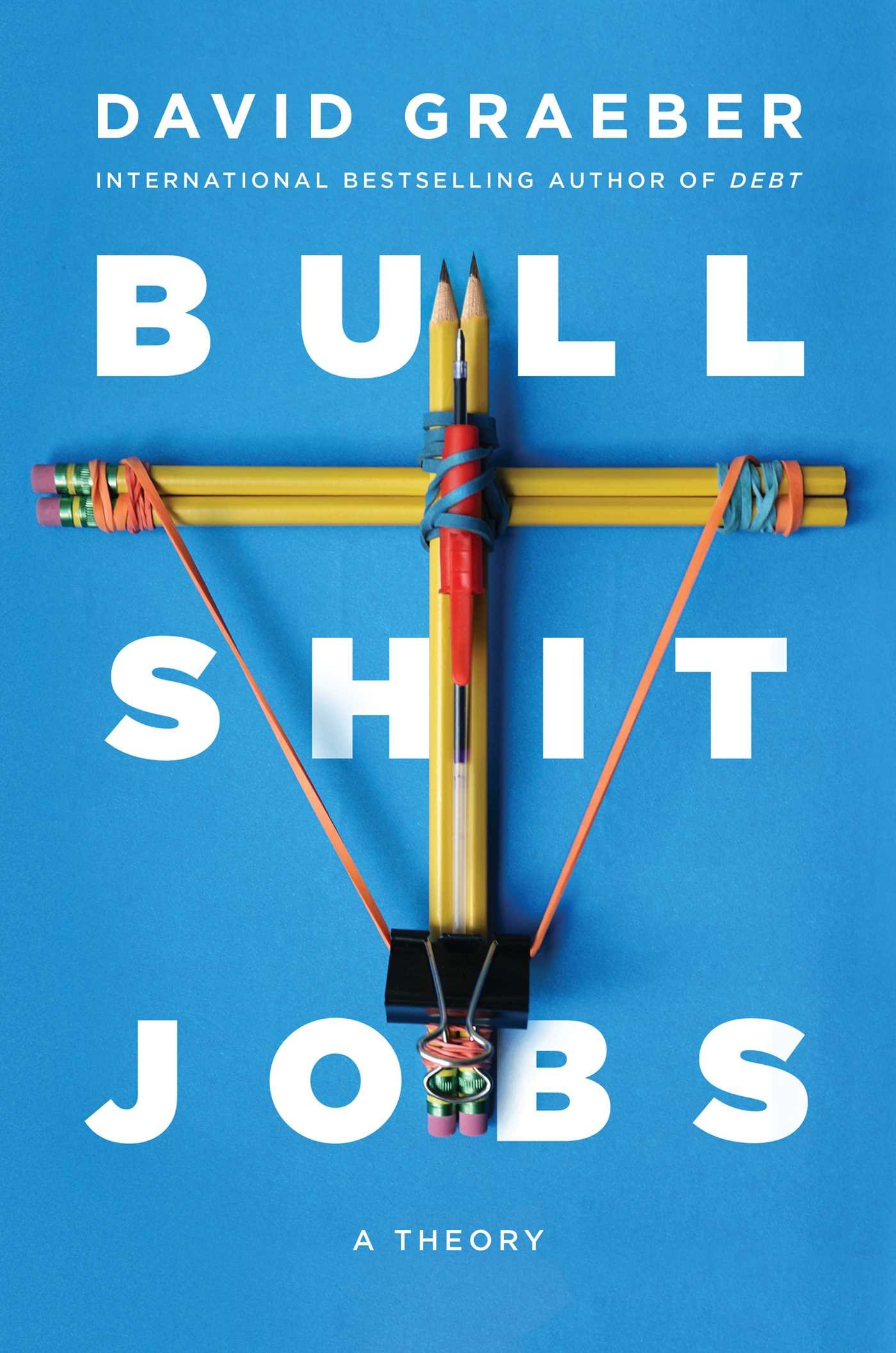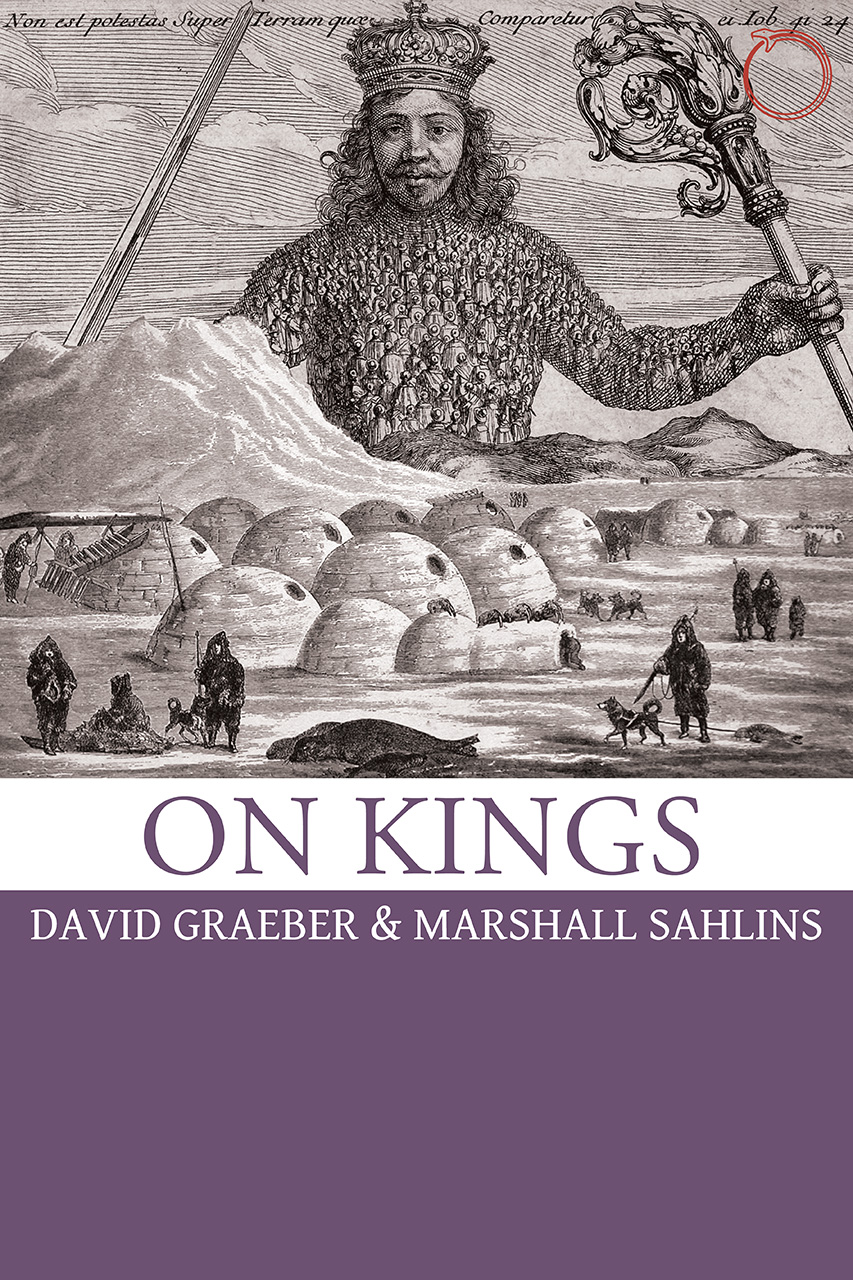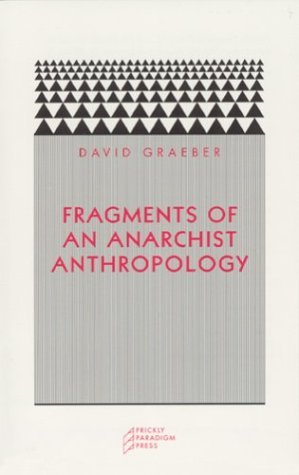
Books
Interview on discoveries, knowledge and the restaurant kitchen phenomenon
2016
View / Download (.pdf) | External link
An Interview with David Graeber (2016)
In 2016, Rachael Kiddey interviewed David Graeber about the concept of ‘discovery’ and about his research.
Experiencing a surprise can be referred to as discovery. Understanding and interpreting the surprise is another issue. David Graeber is interested in looking for ways that create a better world as we already know the wrong way. The relationship between power and knowledge is not that much explored. David Graeber calls it the “Restaurant Kitchen Phenomenon” which means that only the bottom of the hierarchy knows what is going on, the top doesn’t. Another interesting question is the production of knowledge. There can be several perspectives on reality, all reflecting some truth, while construing knowledge is almost poetic.
Forthcoming books deal with the need to move from a finance-based economic model in order to create a long-term viable economy. The conventional narrative of “civilisation” and the inevitable inequality does not hold up either. There have been larger scale communities where inequality was seasonal or early cities in Mesopotamia with no evidence of great wealth disparities. Even large structures like complex irrigation systems, could be run without overseeing bureaucrats. However, it is possible that inequality rose “from below”, i.e households. Another provocative theory put forward in the book with David Wengrow is the enlightenment in North America in 1300s. A surprise discovery.
https://issuu.com/isrf/docs/isrf_bulletin_issue_x
An Interview with David Graeber (2016)
by Rachael Kiddey
RACHAEL KIDDEY: Each year, the ISRF team up with a different university to co-produce a workshop. This year we’re working with Professor Charles Stewart from UCL. The theme of the workshop is ‘Discovery & Recognition’. That is, that as social scientists our work constantly surprises us. May I ask for your thoughts on the theme?
DAVID GRAEBER: Yes. Probably my favourite line in my book Fragments of an Anarchist Anthropology—the book that has got me into so much trouble with anthropologists ever since, because I don’t consider myself an ‘anarchist anthropologist’—is the line where I said, “Maybe someday we’ll be able to realise that all those people discovered by Columbus or Vasco da Gama were really just us.”
I mean people are people, and the whole idea of discovery is a way of trying to create a gulf which doesn’t really exist. Their sensibilities and responsibilities are not that different. They probably didn’t react to the appearance of what must have been, for them, the equivalent of bizarre creatures from outer space any differently than we would have had if something like that happened. So essentially that is what happened, bizarre creatures from outer space appeared. This is not to say that there won’t always be ongoing problems of interpretation. This is the other point that I always make about the ‘Other’, I mean, I’d probably not be able to ever completely understand someone from Madagascar, but I’m never going to be able to completely understand my brother. That’s the human condition.
RK: Indeed, how much do you ever understand anyone, including yourself?
DG: Yes. In a way, that’s how we know people are human, is not what we know about them but what we can’t know about them. They have a potential to surprise us! In a way, that is what constitutes their human reality.
RK: How do you think that the work that you do as a social scientist disrupts the world? How does it intervene?
DG: Well, in my case there’s a continuum between the work I do as a scholar and the work I do as an activist. To some degree, they’re utterly different. That’s why I don’t like being called ‘the anarchist anthropologist’ because ‘anarchist’ is not a type of anthropology, any more than ‘conservative’ or ‘social democrat’ is. On the other hand, I do think a lot about the kind of questions one asks, the kind of approaches one takes, and how one could produce something that would be useful to those who are already working to create a better world; one where we’re more equal and one that is generally decent to live in. I think that we all know the wrong way now. We all know that creating yourself as an intellectual vanguard to come up with a correct analysis and prove that anybody else is wrong and then trying to bring everybody up to your level of consciousness, well… we know where that leads! That’s no good… The ways that intellectual practice intersects with political practice, or is itself political.
Maybe the problem is thinking that there is just one solution to this, that there’s only one kind of way you can intervene that’s right. This is kind of scatter-shot. I’ll try and stitch it together.
I think that part of the problem is that, as social scientists, as academics, we’ve come to write in such a way as to assume that our practice is necessarily political, no matter what we do. I think that it comes from a good place and a not-so-good place. On the one hand it comes from a necessary conscientiousness that even though we might not actually be pulling the levers of power here in the academy, we still, nonetheless, have to take maximum responsibility for what we do. That in turn can turn into a kind of narcissism and self-importance which is entirely unwarranted.
Having sat on American campuses in the 1980s where Foucault became this God, you know? Well, let’s put it this way, that the idea that knowledge and power are basically the same thing is extremely comforting to the egos of those who have a lot of one and none of the other! I read extensively on the relation of power and structural blindness and stupidity, which is not as much explored, because it’s not as interesting. However, you can make the argument that this is more socially important in the long run. Power makes you stupid. You don’t have to know things, so you don’t.
RK: I would imagine that politicians might be a good analogy! Those in powerful positions in Government have a huge amount of power but they’re only human. They can only absorb so much information given to them by SPADs…
DG: Yes, and also they don’t have to really know what’s going on! I call it the ‘Restaurant Kitchen Phenomenon’, because it’s where I first experienced it when I was working as a dishwasher at 16, but you see it over and over again, in all walks of life. The people who are on the bottom of the hierarchy have to know what’s going on, but the people at the top don’t. If something goes wrong, the boss comes in and everybody’s trying to explain what happened. ‘Look, you’re the new guy. You fucked up. Do it again, you’re fired.’ So then everyone else has to scramble to make sure the guy doesn’t get fired, by figuring out what actually happened and addressing the problem.
RK: There’s a trend in social science currently that suggests that the aim is to produce new knowledge. To what degree do you think that ‘production of knowledge’ is possible, or has it always been there but we’ve forgotten it, or we haven’t recognised it?
DG: That’s an interesting question! I think that one of the great questions is how you negotiate between the fact that knowledge is constructed in an almost poetic way, and the fact that it can, nonetheless, be true. When it comes to the philosophy of science or philosophy of social science, I tend to go for the critical realist perspective. I consider myself an ontological realist but a theoretical relativist. There is a reality. We can’t ever completely know it but we have a series of perspectives on it which are incommensurable but that doesn’t mean that they don’t all have some truth. That includes everything from different genres of intellectual practice to stand-up comedy.
RK: Stand-up comedy as an example of participant observation?
DG: Truths you’re not going to find in probably any other genre, but you know definitively that they are true! They’re also not comprehensive. You wouldn’t want to limit yourself to that.
RK: What are you working on now?
DG: I am writing three books. Two of them are with other people. Let’s see… I am writing a book of essays on divine kingship with Marshall Sahlins, my old teacher. He was my graduate school advisor, you know, so this is an enormous honour for me. After that I will write a book to get me some money since I’d like to have a house! I have a two-pronged strategy for getting a house. The first is to write a book on jobs and get a big advance. The second part is to talk down the market, so that’s why I’m pressing on The Guardian, you know! Saying, ‘Oh my God, it’s a bubble, it’s going to crash.’ You can laugh but I think it’s true. And the process should definitely be sped up because this country needs to move from a finance-based economic model as soon as it can if it’s going to create any sort of long-term viable economy.
RK: Thinking back to our conversation earlier about power and knowledge, it is amazing how, in the internet age, a tiny bit of information somewhere can make global markets fluctuate—people panic, pull out their money and then—‘crash!’ It’s as though in worrying about things, we make them happen.
DG: Exactly, and then the other side, just by making people not worry about it you can sustain something, which is like the very definition of a scam. It’s now become official, the basic economic logic.
The third book that I’m working on is also co-written. There’s an archaeologist named David Wengrow. We are writing a book on the origins of social inequality. Essentially the argument of the book is that everybody talking on the subject is using knowledge that was state-of-the-art about a half a century ago. They’re using 60s archaeology and 60s anthropology, unsurprisingly, considering that neither anthropologists, nor archaeologists, have been writing for anybody outside their own disciplines since the 60s—or even their sub-disciplines usually. So we are going to do it. We’re going to catch people up-to-date because essentially everything we know is wrong. People still keep saying, ‘Oh, you know, for most of history people lived in little bands of 20-40 people which were completely egalitarian, but, you know, as soon as you get larger you can’t do it.’
This is the conventional story: Once you’ve got
agriculture, you’ve got private property, so you get inequality from that, and then when you get cities you get a surplus, you get a ruling class that essentially grabs that surplus, you get government bureaucracies managing things because it’s too large to self-organise, but you also get high culture.’ So that’s ‘civilisation’. It comes as a package. That’s kind of the basic story that everybody assumes is the background to the narrative. The problem is none of those things are true. Zero! Many hunter-gatherer societies actually turn out to be extremely unequal, but only seasonally. They would go back and forth: One part of the year they’d be egalitarian, another part they’d assemble into micro-cities and do the exact opposite of what they were doing in other times of year. They would create hierarchies and tear them down again. So then the question is not, ‘Where did inequality come from?’ but how did it get stuck in one modality?
The other interesting thing is the egalitarian city phenomenon which nobody talks about. In many of the earliest cities we know about, the very first in Mesopotamia, the Indus Valley civilisation… there’s just no evidence for a ruling class or even significant differences of wealth and power at all. The only large structures are things like giant public bath systems or things that are obviously for everybody; and it’s quite the same in some of the civilisations that are only being fully explored now, like Tripolye in Russia, Moldova, Ukraine, where the cities were actually larger than Mesopotamia at the time, but again, no huge temples or palaces, no houses bigger than the others, but a series of circles: houses set in circles, circular clusters of houses set in circles…
So early cities usually go through a stage of extreme egalitarianism before anything else happens. Unfortunately, it’s always just before the appearance of writing, so we don’t know nearly as much about these cities as we’d like to. But they clearly existed at the very beginning, and it means the conventional narrative of ‘civilisation’ is simply wrong
RK: That’s really interesting. It chimes with my experience of being involved with squatting. There would always be a first amazing month – people would help one another, do things for free, no arguing etc. – then there reached a critical point where the market and hierarchy intervened. Someone did something that made someone else think, ‘Okay, well if you’re going to finish the sugar then I can use that paint,’ and then before you know it, the same rules and inequalities existed inside the squat as did in the outside world.
Getting back to Tripolye though, these communities—with their round, egalitarian houses—did they keep it up for hundreds of years? How did they do that? Is there really no evidence of social inequality at all?
DG: That’s what’s so interesting: none we’ve found. One of the things that we’re working on is the idea that we’re looking in the wrong place. Maybe it’s not obvious because the inequalities are emerging on the small scale, not the large ones. Everybody has got this obsession of scale now, ever since Dunbar maybe—or ‘scalar stress theory,’ as it’s called—emerged, it’s the explanation for everything. It’s funny because when I was in college the pendulum had swung the other way: they used to say old Stalinists like Karl Wittfogel believed that oppressive states emerged in the Middle East from the need to manage irrigation works—it was basically a functionalist argument—but that we’d since learned from doing actual fieldwork that, no, in most places local people still manage complex irrigation themselves without any need for bureaucrats.
That’s all gone by the boards now. It’s like it never existed. The received wisdom is back to the functionalist logic that as soon as things get big and complicated, local, decentralised, participatory structures can’t handle it, so we need some big bad state to run things for us. That’s absolutely false. So why then do inequalities eventually emerge in early cities? I’m playing around with an idea I call ‘inequality from below.’ After all, there might be a lot of examples of egalitarian cities in history, but it’s a lot harder to find egalitarian households. So it actually is gendered domestic stuff we have to be looking at, the emergence of forms of bonded labour—even slavery—from unequal domestic relations, and how forms of inequality start to bubble up from there.
RK: How far back can we see gendered households?
DG: We don’t really know what was going on in the Neolithic. Obviously all the primitive matriarchy guys are so out that they can’t talk about the possibility that women were actually running anything anymore, but there’s something weird going on with gender, nonetheless, in some of those places where it does seem like… you know, you have places where not only all the figures of humans are females, but they’re wearing masks and doing things that imply they’re humans not deities, then you have places like Minoan Crete where all figures of authority are female… Something’s going on. If nothing else, there were much more egalitarian gender relations in certain times and places. If you look at the Mesopotamia stuff, when the curtain goes up it’s sort of like now. There are women doctors and lawyers but there’s not as many. Then it gets worse and worse and worse. If you project backwards, the same trend would imply that women had even more status in the past, and that’s what the art seems to reflect, but we can’t be certain… who knows?
Anyway, David Wengrow and I have just written up a draft of a piece which will introduce some of these concepts.
RK: How fascinating. I shall look forward to reading that.
DG: This is a big project really. It’s full of slightly outrageous provocations. For instance, we’re working on a theory that the enlightenment actually began in North America in the 1300s.
RK: The Pre-Columbian enlightenment?
DG: Well, you know, they have this kind of ideal of rational male sociality, drinking caffeinated beverages and smoking tobacco in a public space while creating a constitution… This was actually happening among say, the Creek, or Osage, in the fifteenth and sixteenth centuries perhaps, long before Europe.
It all has to do with the collapse of the Mississippian civilization because somehow you have this hierarchical caste-based society practicing horrific forms of human sacrifice, almost industrial agriculture, around say 1000 AD, then bang, a few centuries later it disappears. There are successor states, but they too fall part, and then instead you see the emergence of what can only be called polis-sized republics where they used to be. Then these Europeans come over and say, ‘Oh look, noble savages. They’re egalitarian and individualistic and at one with nature. They must have always been like that.’ This becomes a very important thought of European political thought, of course: Eastern Woodlands Native Americans are seen as the very model of egalitarian individualism from which later Enlightenment thinkers took inspiration. But they saw it as natural. Primordial innocence of some sort. In fact, if you look at the history, what really happened is first the emergence of state-like hierarchical societies, then, those urban civilisations collapse, and a few generations later the Europeans show up and basically find this bunch of hippies. It never occurs to them that there might be some connection—that this might be some sort of self-conscious political ideology.
RK: This goes back to the theme of this year’s ISRF workshop. How do we know that what we think we’re ‘discovering’ isn’t actually just ‘recognising’ ourselves in Others?
DG: Exactly, ‘they’ have similar problems and political ideologies. We just have to learn how to look.




